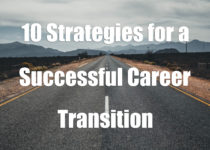Focus on Yourself – Part of Chapter II of the upcoming book ”Find Your Passion”

Focus on Yourself – Part of Chapter II of the upcoming book Find Your Passion
If you want to discover what you’re really passionate about and turn your passion into your dream career, you need to focus on yourself.
Focus on yourself
This is a big one. So, pay 1000% attention. There is one simple but powerful principle to adopt if you really want to discover and follow your passion, as well as if you want to transform both your career and life: Take responsibility.
But what does that even mean? The word ‘‘responsibility’’ has two meanings: First, it’s your obligations and duties, whether they are legal or moral, or both. You’ve got to pay for your children’s education, your family’s expenses, your personal bills; you have to effectively manage your team to reach your targets and deliver the outcome required by your employer, etc.
Second, responsibility means your ability to respond. Your ability to respond to the world, both your inner one and the external. Your external world includes, but it’s not limited, the following: Circumstances, the economy, politics, laws, God, karma, universe, luck, society, any person you interact or you might interact with, such as family, friends, relatives, partners, colleagues, classmates, acquaintances, and strangers, the weather and any natural phenomena (tsunamis, earthquakes, hurricanes, wildfires, other natural disasters), pandemics (including Covid-19), social phenomena (human crises, war, racism, poverty, unemployment, human trafficking, violence, or any violation and degradation of the fundamental human rights). Ah! Let’s not forget alien invasions or the dominance of super-intelligent robots over humanity (I mean, you never know!). Or anything else that is not subject to your direct control.
All the above are not subject to your direct control. That means you are not in full charge of these things, nor will you ever be. Why? For the simple reason that your actions/inactions on them are not the only factor that determines the final outcome. If you are thirsty, you are the only person to decide that you want a glass of water, as well as the only one who will go and drink it. You want water? You drink water! On the other hand, it’s more complicated with the aforementioned. Is the weather bad today and you don’t like it? Then, focus on the weather, complain with all your inner power, and..boom! The weather now is great! Or not. You want peace in the world? Just go alone and tell the parties involved to stop. And they will! What about persuading someone? That can be tricky. You can influence them, but remember that they are the ones who will decide to agree or disagree with you. They are the only and real decision-makers of themselves; as you are. Of course, there are many opportunities for you to make a positive impact on the world; but you cannot make this impact instantly, the very moment you decide that you want to do so. It takes more time and, depending on the impact you want to make, more people. Remember: Influencing does not mean you are in full charge.
But here’s some good news. There is one person in the entire universe you can actually be in full charge of! Yes. Yourself. So, responsibility here means focusing on what you can control, not what you can’t. It also means stop blaming, complaining, and finding excuses about anything that is outside of yourself, your area of ultimate power. Yes. You and only you are the ultimate master of your life. You are the master of your inner world; the master of yourself.
‘‘If you want to change the world, start with yourself’’
– Mahatma Gandhi, 1869 – 1948, one of the greatest peace advocates and leaders of modern times –
Your Inner World
So, what is your inner world? And how can you change it? Well, you cannot define it; nor do you need to. Because it’s infinite. Exactly like your potential. But for the purpose of this explanation we’ll define it through two core concepts:
a) Your “being”
b) The response of your “being” to the external world
a) Your “being”
Your being comprises an inner kingdom, where your mind and body, your values, your life vision, your mission and social contribution, interests, strengths, skills, personality, temperament, and character rule. As active citizens of your kingdom, everything plays their own unique role to serve the King and Queen, as well as their society, as much as they can. Your ‘‘being’’ is the kingdom and you are the King or Queen. Now pay all your attention here because the following point is of crucial importance. It’s the core of the meaning of “responsibility” and the “Focus on yourself” principle: Responsibility is your ability to respond to your emotions; the emotions about yourself.
b) The response of your “being” to the external world
This is your emotional response to people, events and circumstances. Again here, responsibility is your ability to respond to your emotions; this time, your emotions about other people, events and circumstances. In other words, responsibility is your emotional responsibility, and the “Focus on yourself” principle means to focus on how to manage and master your emotions. That is, self-mastery.
But what does that even mean? Mastering your emotions is the art and science of self-management. An important distinction here for you to keep in mind, as we’ll meet it again shortly: Mastering your emotions does not mean suppressing them. Remember that. And before we move on how to manage yourself and your emotions, I need to underline first what you should avoid as much as possible. For you to take 100% responsibility for your life, not doing is as important as doing. So, let’s start with what actions and behaviors you should avoid, regardless of the circumstances.
1) Blaming: Ever met someone who believes they always do everything right and others always do everything wrong? Of course, I’m not talking about you. But I’m sure you must have met someone. These people expect others to solve their own problems, whether it’s their friends, family, partners, colleagues, the government, the universe, or God. From someone who wants to get married for financial and emotional security to a boss who just gives orders to their associates and employees, without further discussion (even less a constructive one). These people feel upset because “nobody understands” them. Are there many people who think this way? Yes. In fact, it’s the majority. Why? Because it’s much easier and more comfortable. That’s also why most people are not healthy, wealthy, and happy. For this to happen, you should shift your focus on yourself. Is it hard? Yes. It’s hard to take full responsibility for your results and your life. It takes courage. Is it worth the courage? Absolutely.
Besides that, be aware that blaming, as well as the following behaviors, harm your immune system. When you blame others, you judge. When you judge, you generate negative thoughts, and consequently emotions. And as we said before, negative emotions, due to their low electric charge, reduce the positive electric charge in your body, creating this way irregularities in your electric currents. These irregularities harm your immune system and make you more prompt to illness.
“But Jim, I don’t blame or judge myself. I blame and judge others. So, these negative emotions don’t stay in my body, because they are addressed towards others! Right?”, it’s what I expect you not to think, but in case you did here’s my response: Wrong! When you talk about others in a negative way (e.g. gossiping), you create unconscious guilt towards yourself. But why? Because you expect unconsciously that others will blame and judge you, exactly as you do. Remember: Anything you do, think, and say about others has an impact on you. Because your actions come from your emotions and thoughts, and the last ones from your beliefs. So, if you believe unconsciously that “Blaming is ok/normal”, then you blame and judge everyone, including yourself. That’s why blaming and self-judgment are different sides of the same coin. Whether you’re conscious about it or not – and most likely you aren’t – what you do to others, you do to yourself. Your subconscious mind makes no exceptions in your behavior, including yourself! Here’s the bright side: If you acknowledge others, you’ll also acknowledge yourself. You’ll create unconscious self-acceptance. And if you want to be in full charge of your life and take responsibility, you need to accept yourself first.
2) Complaining
Have you ever met someone with the unique ability to find the negative out of every positive thing (not you, of course), regardless of the circumstances and how well they might be treated? They dig out the problem out of every situation, even out of the solution itself? For example, imagine you and a friend (who complains a lot) are dining in a restaurant. The ambiance and decoration are great. Customer service: Excellent. Appetizer, main dish, and dessert: Exceptional! Drinks? Fabulous. What about the view? Spectacular. Is it worth the money? Absolutely. Or not? Because your friend says “Well, it was good, but I think we could have found somewhere cheaper.”; even if the prices were ridiculously cheap, your friend would have found their way – remember, they always do, They would have said “The weather was bad. It was rainy and cloudy.’’, even though you had a car! People who complain always find a way to turn the positive into negative, and the negative to even more negative! They are experts on that. On the contrary, you need to become the expert in identifying and abstaining from this behavior, whether it’s caused by others or yourself.
3) Finding excuses
“I don’t have the time/money/resources/team/knowledge/support I need to__________________” (fill out the blank). How many times have you said something like this in your life? If you’re honest, it’ll be more than one. And it’s quite likely you have been using the same “story” and “narrative” to justify the fact that you have not found yet a career with more impact, more income, and more fulfillment. Let me make here an important distinction: Your life obligations, problems and obstacles do not justify your results.
In other words, do not use things out of your direct influence, out of yourself, as excuses for not having the results you want and the life you want to live. This way, you rely your happiness and prosperity on things that you cannot control. That is, you give away your inner power; your power to be anyone you want to be, and achieve anything you want to achieve.
“Do not use things out of your direct influence, out of yourself, as excuses for not having the results you want and the life you want to live.”
Again, it’s easy to come up with excuses. I’m sure you can find plenty of them in every area of your life; from your career and finance to your health, personal growth, and relationships. You might think that your boss does not recognize your value, but have you ever thought about focusing on what you can do to make your value indisputable? You cannot close a deal with your prospective clients, because they do not “get” the value of your product or services? Maybe it’s time for you to listen to their needs more carefully. You want financial security while transitioning to a career with more impact and fulfillment, but you don’t have the time to have both? Find the time. Manage your time more effectively. That’s how many people did it.
Do you want to save more money for education or your future business, but you “can’t” spend less or downgrade your lifestyle for a certain time period? Do you want to lose 10 pounds and exercise to strengthen your immune system during the Covid-19 pandemic? “Of course. But I have so much work/things to do that there’s just not enough time for it”. Same for spending more quality time with yourself and your loved ones.
Excuses are not but evidence of lack of three things: a) Awareness b) Priorities c) Commitment. Put it simply, if you don’t know the most important things right now in your life (awareness), you won’t be able to prioritize. That means investing more time in one thing over another. This does not mean excluding the other areas of your life or ignoring the value of harmony in your life. It does mean though that you invest more time in the things and areas that matter most to you right now. Finally, once you prioritize, you build your life around your priorities (which are limited, otherwise they are not priorities). As a result, you commit yourself to your priorities. On the contrary, if you are not aware of what is a priority to you in this period of your life, your focus is spread in various things, which end up being distractions. So, there’s no commitment on your behalf. I chose to avoid using the phrase “little commitment” because there is no “little” in commitment. When you are committed, whether you do something, or you don’t. There’s no “middle ground” or “back-and-forth”. To put it bluntly, you burn all the boats and never look back.
Do this, and you’ll be surprised where the excuses went. In fact, you’ll still have obligations and problems. But in this perspective, where you are committed, you don’t interpret things and events outside of your influence as excuses. Now, they are opportunities. Remember: The only difference between excuses and opportunities is your perspective.
“The only difference between excuses and opportunities is your perspective”
Feel free to connect with me on Facebook and LinkedIn, as well as check the upcoming book ”Find Your Passion”, by visiting my personal site JimPanos360.com


